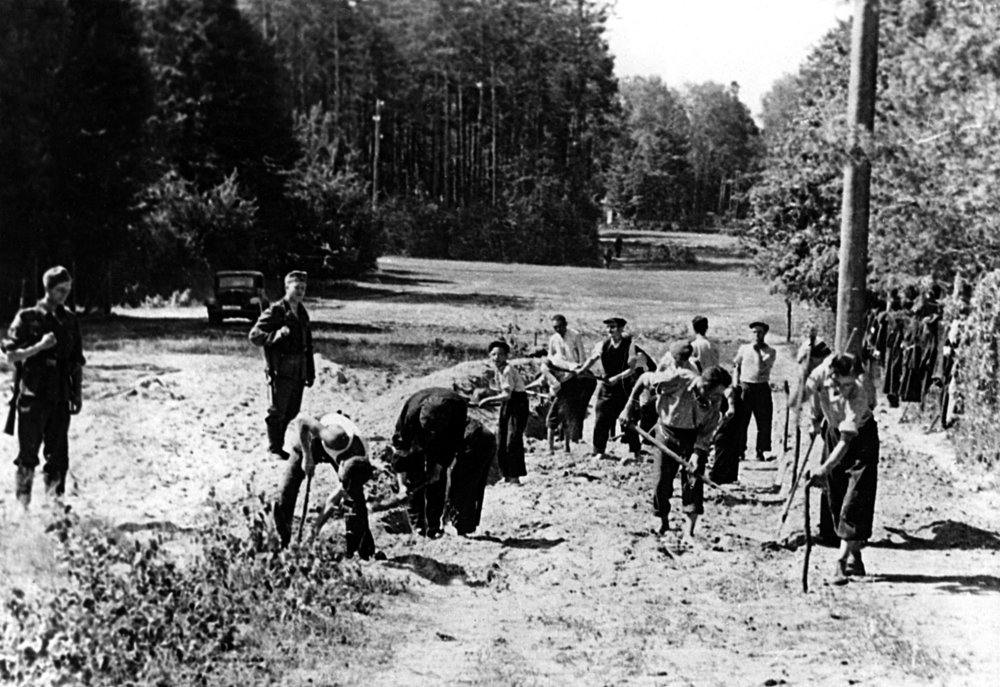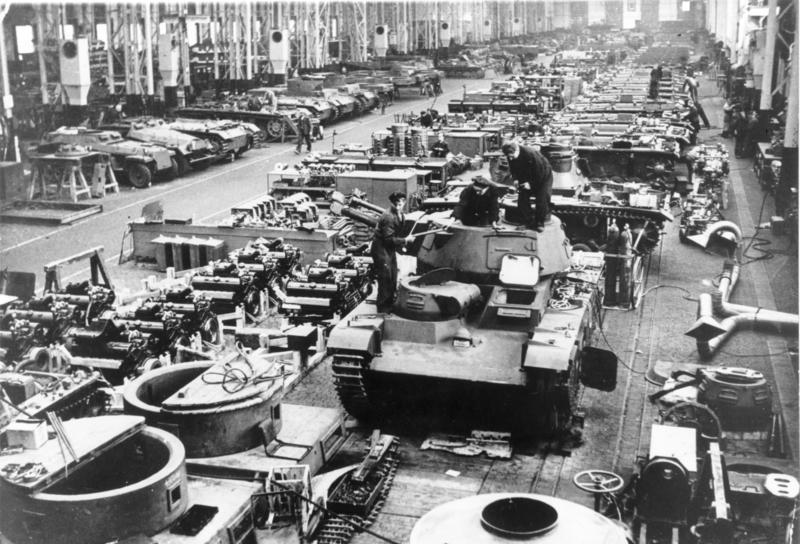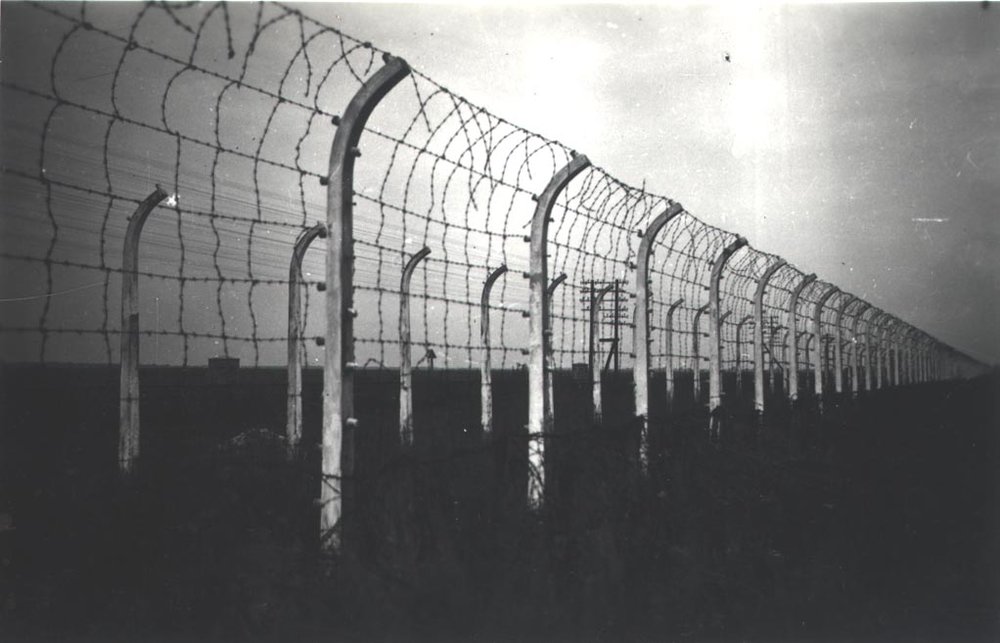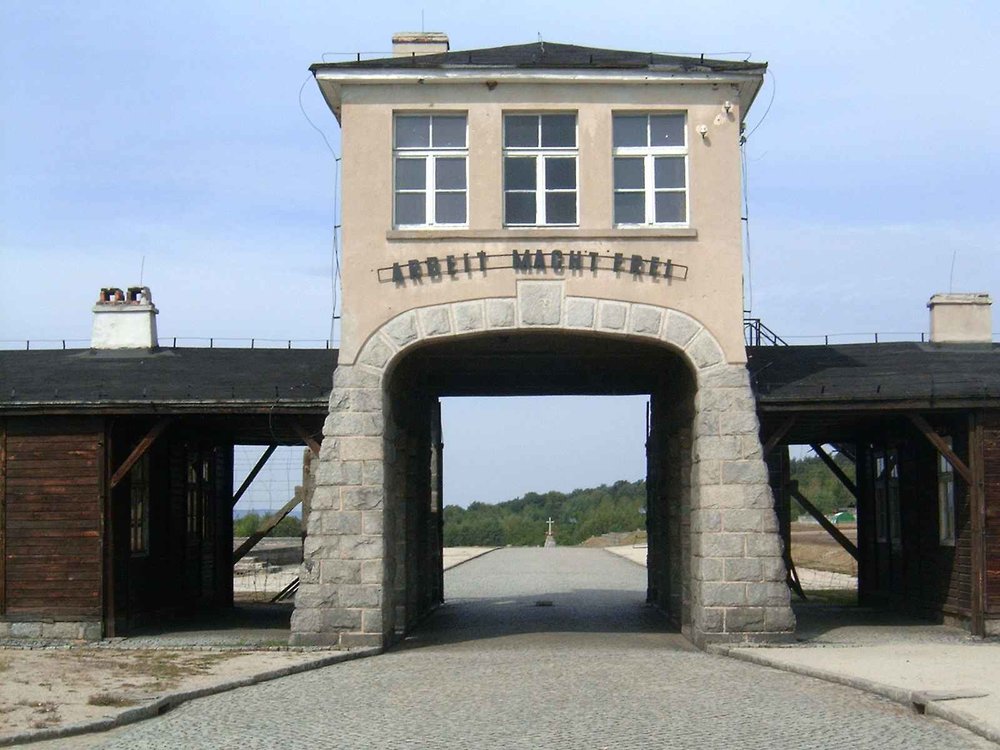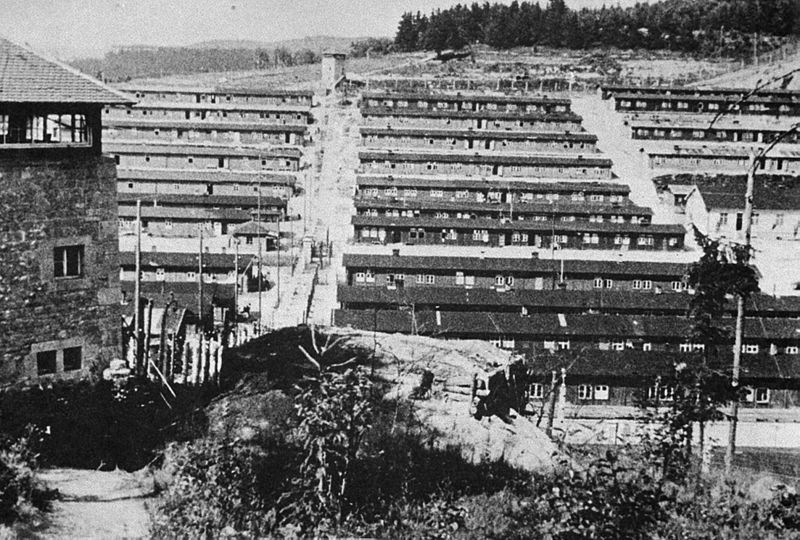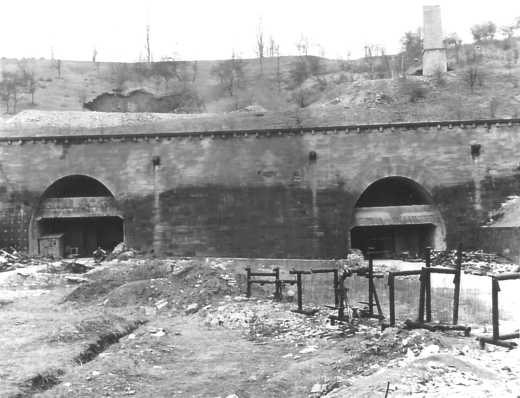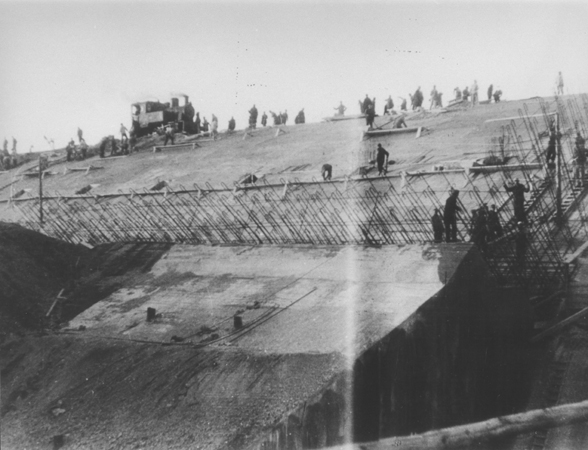EXCERPT FROM THE LONG NIGHT
Grünheide
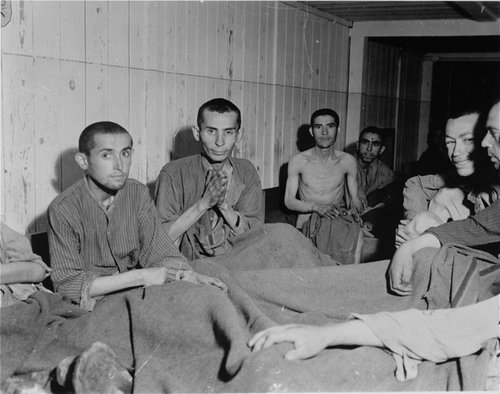
Prisoners in the infirmary barracks for Jewish inmates in Ebensee camp after liberation. [USHMM courtesy of National Archives and Records Administration, College Park]
At the start of the winter, many of the strongest young men from a number of motorway construction projects were assembled and dispatched to an unknown destination. They were sent to build roads and railways on the Eastern Front where many contracted typhoid. Surprisingly, at the end of winter, a group of young men returned from the East to Grünheide, and were immediately placed in isolation.
“A large majority of the inmates lay in fevered delirium babbling incomprehensibly. My school friend Lieber was delirious and unconscious. Some of the sick had survived the fever only to be afflicted with acute pangs of hunger, which usually follow typhoid. They wolfed down a large plate of soup as soon as it was placed in front of them. They also gobbled an enormous amount of potatoes that had been boiled in buckets. The atmosphere and mood in the sick barracks was rather jolly and optimistic, and not at all depressing. Paradoxically, the delirium of those who were seriously sick was accompanied by a euphoric mood. One example was a delirious man who smeared his jam ration on his chest before licking it off as he sang. Another sang prayers sitting on his bunk, and I could not distinguish whether he knew what he was singing or if it was a symptom of his fever. However, not everyone could withstand the burning fever, and many perished before the typhoid epidemic eventually abated. Moreover, there was a complete lack of medical support. The camp medical orderly had no medical training, but he tried to help the sick with medication. The dead from the epidemic were buried in the forest behind our camp, where our first victim, the unforgettable Dunkelblum, was already buried.”

